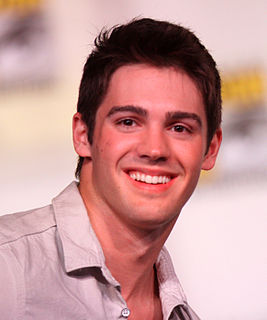A Quote by Howard Nemerov
Robert Frost had always said you mustn't think of the last line first, or it's only a fake poem, not a real one. I'm inclined to agree.
Related Quotes
It was early on in 1965 when I wrote some of my first poems. I sent a poem to 'Harper's' magazine because they paid a dollar a line. I had an eighteen-line poem, and just as I was putting it into the envelope, I stopped and decided to make it a thirty-six-line poem. It seemed like the poem came back the next day: no letter, nothing.
I think what gets a poem going is an initiating line. Sometimes a first line will occur, and it goes nowhere; but other times - and this, I think, is a sense you develop - I can tell that the line wants to continue. If it does, I can feel a sense of momentum - the poem finds a reason for continuing.
We stand now where two roads diverge. But unlike the roads in Robert Frost's familiar poem, they are not equally fair. The road we have long been traveling is deceptively easy, a smooth superhighway on which we progress with great speed, but at its end lies disaster. The other fork of the road - the one less traveled by - offers our last, our only chance to reach a destination that assures the preservation of the earth.
But if the strength ain't real, I recall thinking the very last thing that day, before I finally passed out, then the weakness sure enough is. Weakness is true and real. I used to accuse the kid of faking his weakness. But faking proves the weakness is real. Or you wouldn't be so weak as to fake it. No, you can't ever fake being weak. You can only fake being strong. . .
I started training wrestling in the pre-social media era and I was very cautious - I thought, 'I can't have people know my real last name.' So I changed my last name to End because I always called myself 'The End.' I thought that was cool. I thought I'd take my real first name and my 'fake' last name, and that's how I came up with Tommy End.
There's a line in The Barretts of Wimpole Street - you know, the play - where Elizabeth Barrett is trying to work out the meaning of one of Robert Browning's poems, and she shows it to him, and he reads it and he tells her when he wrote that poem, only God and Robert Browning knew what it meant, and now only God knows. And that's how I feel about studying English. Who knows what the writer was thinking, and why should it matter? I'd rather just read for enjoyment.
Me, I always wanted frost power.” “Frost power?” “Yeah.” Seth gestured dramatically toward my coffee table. “If we’re talking superhero abilities. If I had frost power, I could wave my hand, and suddenly that whole thing would be covered in ice.” “Not frost?” “Same difference.” “How would frost and/or ice power help you fight crime?” “Well, I don’t know that it would. But it’d be cool.




































